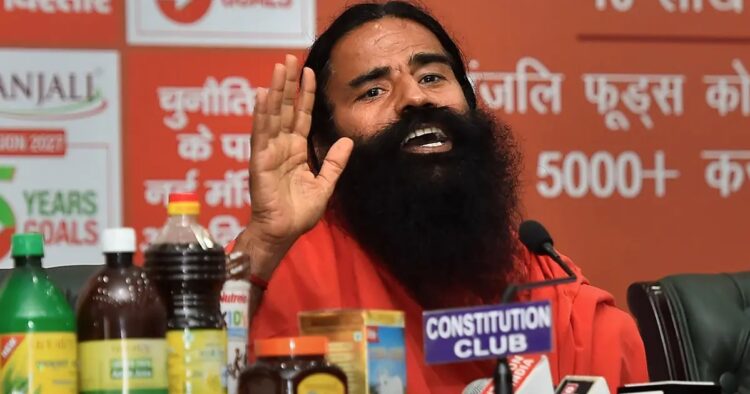In a recent hearing, the Supreme Court of India sternly reprimanded Patanjali Ayurved co-founder Baba Ramdev, the company’s top executive Acharya Balakrishna, and the central government for their roles in misleading advertisements. The court criticized Ramdev and Balakrishna for their “absolute defiance” in filing improper versions of affidavits demanded by the court, while questioning the government’s inaction despite Patanjali’s claims disparaging modern medicine, particularly regarding COVID-19.
A bench comprising Justice Hima Kohli and Justice Ahsanuddin Amanullah expressed disappointment with the Ministry of AYUSH for failing to act against Patanjali despite “shocking” ads belittling contemporary medicine. The court emphasized the importance of transparency, particularly during critical periods such as the COVID-19 pandemic, and questioned why the government did not make efforts to clarify the role of Ayurvedic medicines as supplements to vaccines.
This isn’t the first time the government has faced criticism over misleading medical advertisements. In February, the Supreme Court accused the government of turning a blind eye to false and misleading ads, demanding immediate action. The court urged the government to address the issue effectively and find a remedy to combat misleading medical ads.
The court’s displeasure extended to Patanjali Ayurved, particularly regarding the casual manner in which an affidavit offering an unconditional apology for the misleading ads was filed. The court deemed the affidavit “indefensible” and “humbug,” suggesting that Patanjali could be guilty of perjury. Despite previous court orders, Patanjali continued to run ads ruled as misleading, prompting the court to condemn their “absolute defiance.”
Solicitor-General Tushar Mehta acknowledged the lapse in filing proper affidavits and proposed discussions with Patanjali’s counsel to address the issue. However, the court maintained its stance, emphasizing the need for compliance with court orders and giving Ramdev and Balakrishna one last chance to file proper affidavits.
The Supreme Court is currently hearing a contempt case against Patanjali Ayurved for publishing advertisements containing false claims about its products’ medical efficacy. The court had previously directed Patanjali to cease all electronic and print ads with misleading information. The case originated from a petition filed by the Indian Medical Association alleging a smear campaign by Baba Ramdev against the COVID-19 vaccination drive and modern medicine.
In conclusion, the Supreme Court’s rebuke underscores the importance of truthful advertising, especially in matters of public health. The court’s insistence on accountability and compliance highlights the need for responsible marketing practices, particularly during times of crisis.

















Comments